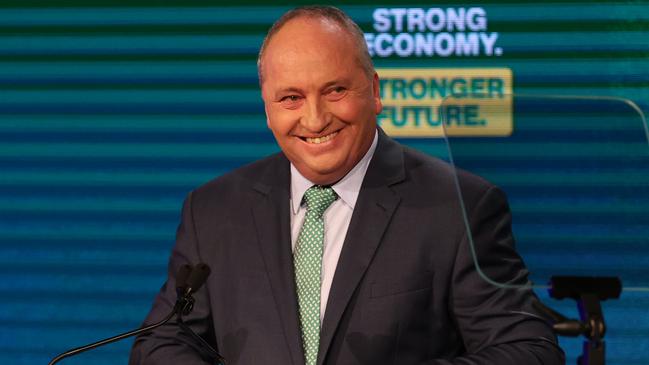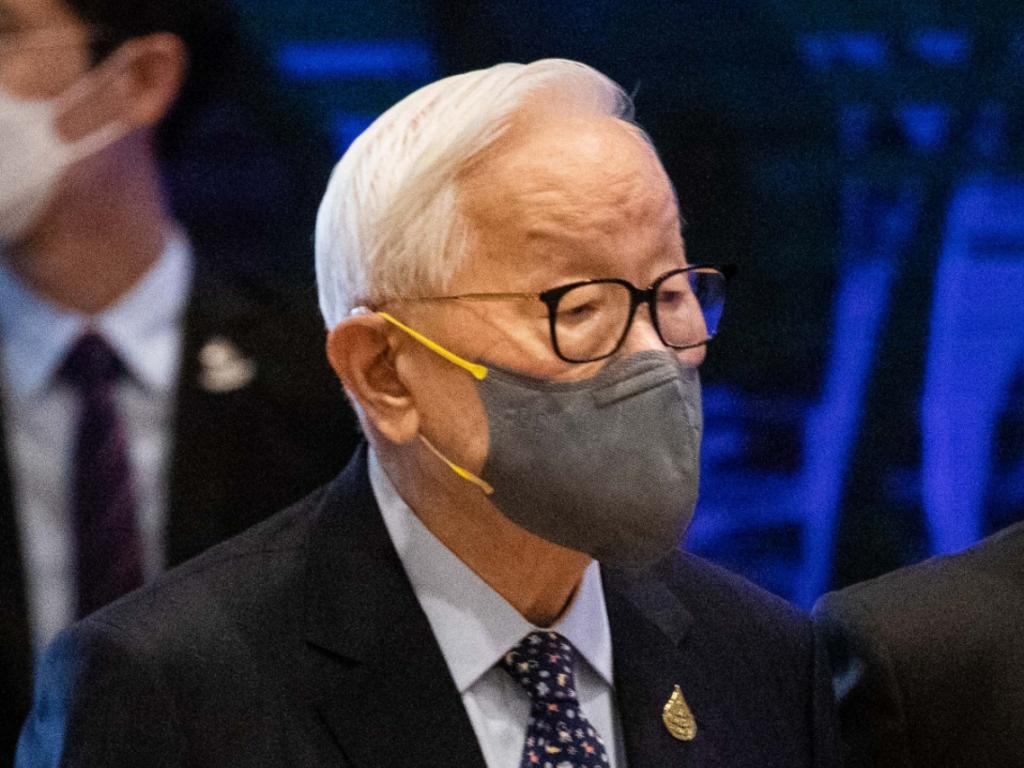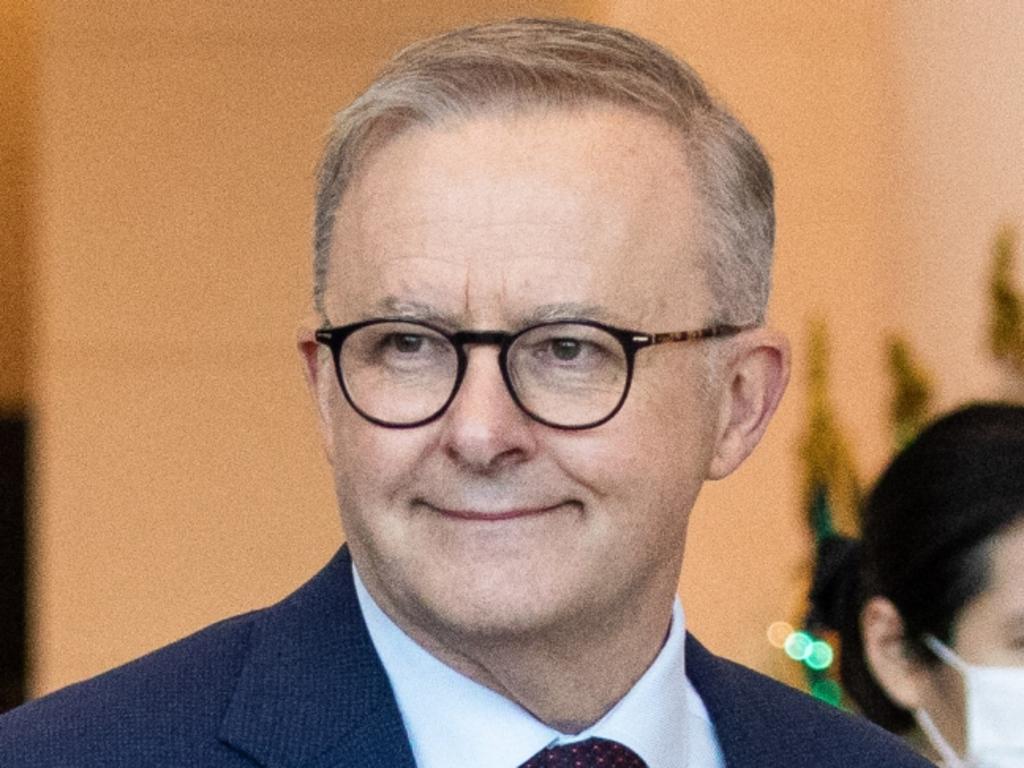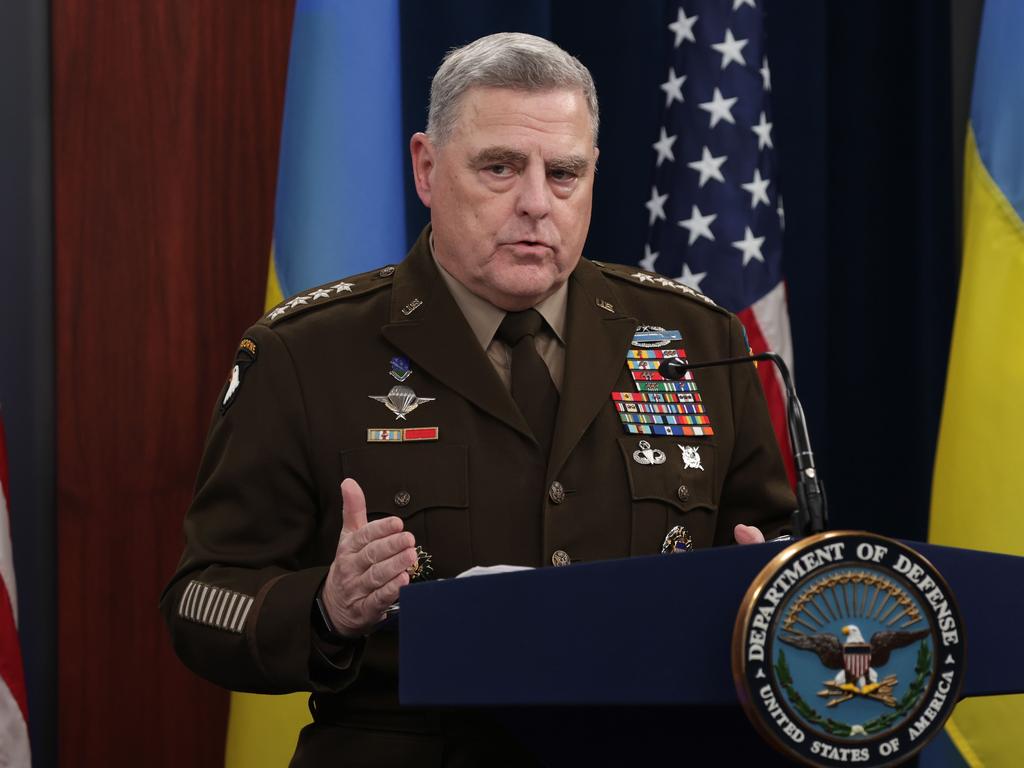MPs fly to Taiwan for secretive bipartisan talks
A bipartisan group of Australian politicians will fly to Taiwan on Sunday, ending a more than three-year hiatus that will calm concerns in Taipei.

A bipartisan group of Australian politicians will fly to Taiwan on Sunday, ending a more than three-year hiatus that will calm concerns in Taipei that Canberra has sidelined the relationship for fear of upsetting Beijing.
The Weekend Australian can reveal the first group of sitting Australian parliamentarians to visit Taiwan since 2019 will include former deputy prime minister and Nationals leader Barnaby Joyce, two Labor members of the Albanese government, Meryl Swanson and Libby Coker, Liberal National Party members Scott Buchholz and Terry Young, and Liberal Gavin Pearce.
During their five-day trip, the group wants to convey Australia’s desire to preserve peace in the Indo-Pacific region.
Russia’s invasion of Ukraine had demonstrated the perilous cost in human life and economic pain of a hot war, said Mr Buchholz, an assistant minister in the Morrison government who helped organise the secretive trip.
“We want peace in the region,” the Queensland MP told The Weekend Australian in an interview in Canberra.
“Australia has many friends. Just because we are friends with Taiwan does not mean we can’t be friends with China,” he said.
The six-person bipartisan delegation will travel with support from Taiwan’s Foreign Ministry. Their visit will include meetings with President Tsai Ing-wen and Foreign Minister Joseph Wu.
They will also meet with senior trade, security, agriculture and indigenous affairs officials in Taipei, and will visit Taiwan’s world-leading semiconductor industry, a crucial part of the international economy.
Details about the trip have been tightly guarded to deny any opportunity by China’s diplomats in Canberra – as well as their lobbyists in Australia – to pressure the Albanese government to intervene and cancel the trip.
Australian parliamentary visits to Taiwan have become extremely sensitive in Canberra during Chinese President Xi Jinping’s decade in power.
Australia has had only unofficial relations with the liberal democracy of 23 million people since Canberra switched recognition to the People’s Republic of China 50 years ago.
In recent weeks, sources in Taipei had told The Weekend Australian there were concerns within the Tsai government that pressure from Beijing could scuttle the visit.
Trips were impossible in 2020 and most of 2021 because of Covid travel restrictions. The absence since those were relaxed in both Australia and Taiwan has become increasingly discussed in Taipei as multiple delegations from the US, Japan, Canada, Europe and the UK and elsewhere have visited the geopolitical flashpoint.
The Department of Foreign Affairs and Trade has been particularly nervous about the potential of reprisal by China, which claims self-governed Taiwan as its own territory.
Those concerns in Canberra were heightened as Australian diplomats negotiated with their Chinese counterparts over a meeting between Anthony Albanese and Mr Xi at the G20.
While relations between Australia and China have slightly improved, there is still no removal of Beijing’s sanctions on exports previously worth $20bn a year, nor progress towards securing the release of imprisoned Australians Cheng Lei and Yang Hengjun.
The Prime Minister and at least three other members of his cabinet visited Taiwan during 2018 and 2019, including Trade Minister Don Farrell, Communications Minister Michelle Rowland and Skills and Training Minister Brendan O’Connor.
Taiwanese officials are expected to ask the Australians in their private meetings for clarification on Canberra’s position on Taipei’s application to join the giant trade group, the Comprehensive and Progressive Agreement for Trans-Pacific Partnership.
Days after meeting with Mr Xi in Bali, Mr Albanese appeared to suggest Taiwan’s disputed international status made it ineligible to join the trade pact. Those comments were later walked back.
Potential progress on a bilateral free-trade agreement with Australia will also be raised.
Both Singapore and New Zealand have free-trade agreements with Taiwan, Australia’s seventh-largest two-way trading partner.
Taiwanese diplomats have long pointed out that discrepancy to their Australian interlocutors, most recently Canberra’s representative Jenny Bloomfield, whose posting in Taipei will end in the new year without any progress on a trade agreement.
John Toigo, chair of the Australia-Taiwan Business Council, recently spoke of his frustration when engaging Canberra on a free-trade agreement during the Abbott, Turnbull and Morrison governments and now with the new Albanese government.
“The retort we get … is that it’s a question of when, not if,” Mr Toigo told The Weekend Australian. “But that sort of line has been going on for a good many years, and there doesn’t seem to be any traction whatsoever on that. We just think the government should get on with it.”








To join the conversation, please log in. Don't have an account? Register
Join the conversation, you are commenting as Logout